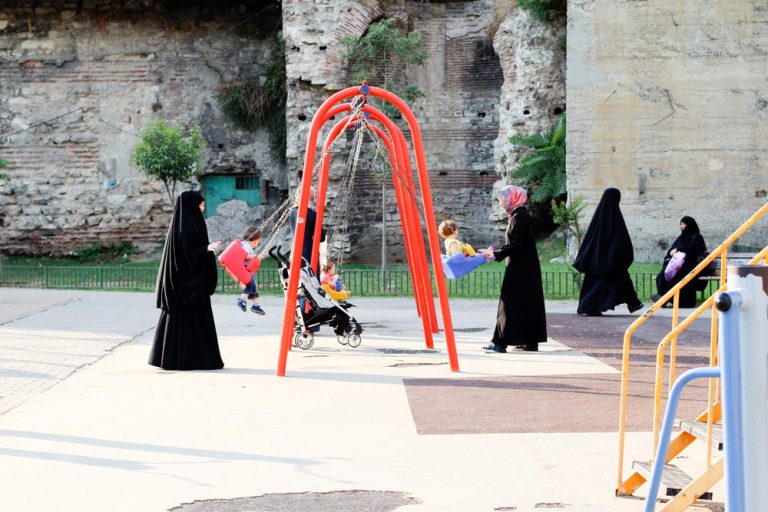Ethnic minorities need to come together against racism during the coronavirus pandemic
On what seemed like a typical start to the weekend, I, like many others, was searching for what my usual Friday night takeaway would be. Inspired by Michelle Chai’s tweet asking others to make their weekly takeout an East Asian choice, as her family business, like so many other local restaurants, was suffering due to the racism that developed along the coronavirus outbreak, I was flicking through a vast amount of choices—ironically during the heights of stockpiling.
This is going to sound kinda mad, but this week, pls consider making your weekly takeout a Chinese takeaway. My family's businesses have all been impacted hugely by coronavirus panic 😭
— Michelle Chai 蔡詠兒 (@winyeemichelle) March 9, 2020
Did I want Chinese, Vietnamese or Thai? Were there any halal Korean places near me? I thought. I could do with a piping hot bibimbap. That’s when I looked up to see my mother’s concerned face. She asked if I was really going to get a Chinese takeaway in the midst of everything. I deeply sighed yes. That’s when I realised that coronaracism was affecting everyone, whether they noticed it or not. Here’s why now is the time for ethnic minority communities to come together.
In my mother’s defence, as an excellent cook who is against any takeout regardless of what’s happening in the world, she would have questioned me the same any day of the week. Yet her moment of ignorance as a South Asian immigrant woman represents an amalgamation of overconsumption of hysterical news, political divergent tactics onto minority East Asian communities as well as good old fashion immigrant fear. It pushes people into thinking that they have to take a step back or they will somehow also end up in the ‘firing line’.
Though her momentary slip—and it was a moment because who can say no to bibimbap?—was not malicious nor vindictive, it was a snapshot of ethnic minorities falling into the trap of distraction via racism. My mother, among many other people, is not blaming leaders who are in charge of our safety and security nor is she questioning why we’re still having to pay mortgages when countries like Italy paused all mortgage payments due to decline in work but instead is looking to turn away from each other in a time of need.
A key explanation I gave my mother about why it’s so integral we support East Asian businesses (not just Chinese businesses but also Vietnamese, Cambodian and Malaysian ones as racism has a history of being dumb and presumptuous) was the thousands of Indian restaurants that were affected by the aftermath of the 9/11 terrorist attacks. Indian restaurants, owned by Muslims or not, were left empty because customers didn’t want to support their businesses. Regulars consciously moved away from them in case they were mistaken for being terrorist sympathisers and therefore personally viewed as less American or British.
In China, Islamophobia is currently at an all-time high and the country has recently been called out for putting Uighur Muslims in concentration camps. But locals are not the issue here and neither should they be in the UK. It would be a shame to treat people how you have known to be treated.
In an era where marching and activism became ‘cool’, the East Asian community has previously received slack for not participating enough. Whether that’s local politics or speaking up for Black Lives Matter and other people of colour, there seems to be a lack of socio-political engagement. Chinese immigrants are usually perceived as the invisible community, they are seen to be “good immigrants” writes Wei Ming Kam in The Good Immigrant. They are “sensible, quiet, shy” so they “integrate well” but these model minorities are “not seen as humans, because we never get to be complex individuals. Our defining characteristic is generally our foreignness.”
Regardless of how well you may assimilate into western cultures, blame can always be misplaced. When President Trump calls coronavirus the ‘Chinese virus’ on Twitter, we’re watching a community being used as a scapegoat in real-time when we all know that viruses don’t discriminate and definitely don’t take your ethnicity into consideration. There are many more examples that can highlight this racism in times of crisis.
As ethnic minorities, we might feel that the ‘easy thing’ to do would be to align with white supremacy and point the finger at China in hopes that for a moment racism will forget about us and our own battles. However, what this pandemic has taught me so far is that it’s an opportunity to offer generosity. We need to form a bridge where there have been cultural and religious differences and not remain silent because we are the first ones to know exactly of the consequences when no one is on the other side—how terrible it can be when the rest of humanity decides to stay quiet.
In the meantime, my last advice for you is to order that Chinese takeaway while also educating your older parents on why they shouldn’t worry about their health when eating Chinese food and why they need to support their local businesses. We can be a part of the rise of communal aid. Show them that when we don’t give into fearmongering, we stop accusing each other and get to the real work of rebuilding society. We take away the power over us and foster relationships that will last beyond any virus outbreak.





